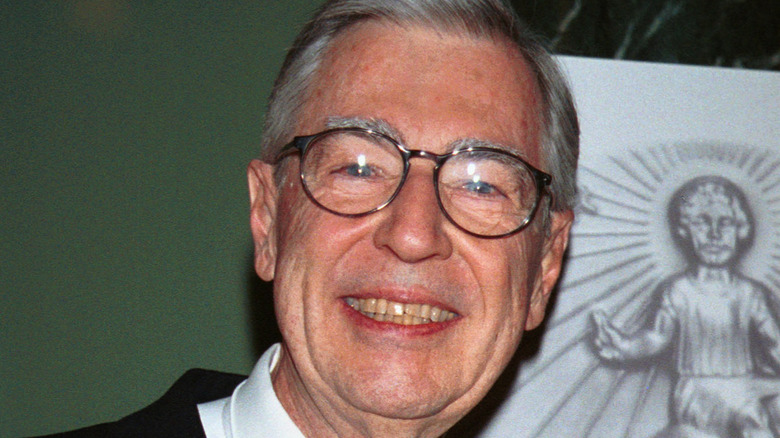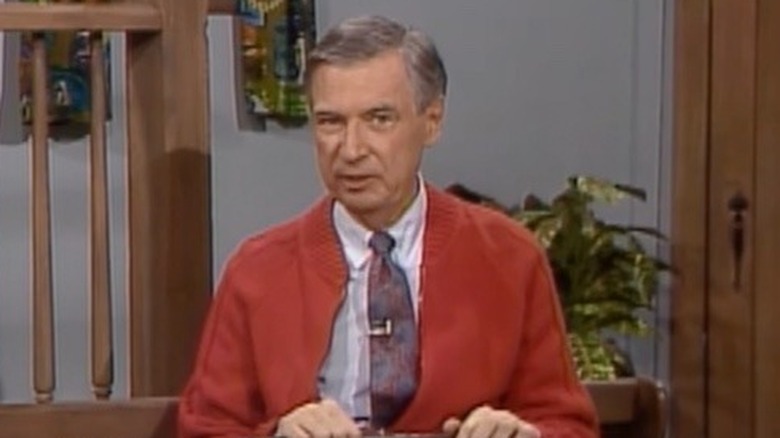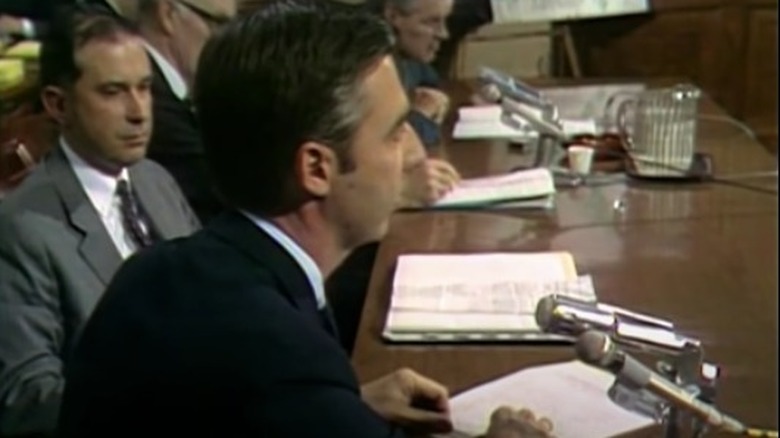The Scene In Mister Rogers' Neighborhood That Had Fans Fuming
In 1983, thirty-six years into the Cold War between the United States and the Soviet Union (and just six years prior to the fall of the Berlin Wall and all it signaled), popular children's television host Fred Rogers sparked controversy when he explored the increasingly hot geopolitical conflict on "Mister Rogers' Neighborhood."
In a week-long series of episodes titled "Conflict," the PBS host, creator, and series showrunner addressed a number of issues that were working their way into homes across America and falling on the ears of children who had little understanding of the events. The episodes were intended, the Daily Beast reports, "as a way to better explain the conflict" to young viewers, as opposed to ABC's much more grown-up miniseries "The Day After," but while both specials aired on the same week, the timing was "purely coincidental," as noted by the Neighborhood Archive fansite.
Whether the juxtaposition in messaging was intentional or not, the episodes caused an uproar, ostensibly because they talked about issues the public and networks felt were too mature for Rogers' audience, such as air raids, bombs, and nuclear war. It's more likely, however, that it was what the episodes had to say about the conflict (and not the mere fact that they mentioned it) that concerned both the government and the public at the height of the Cold War.
Fred Rogers' criticism of military spending angered Cold War America
As The Neighborhood Archive explains, Episodes 1521-1525 followed The Neighborhood of Make-Believe's King Friday (Rogers) and his growing concern that Corney (a beaver and factory owner) might be stockpiling bomb parts for the neighboring land of Southwood. Once the monarch discovers Corney "is manufacturing some 'things' for Southwood," he sends Handyman Negri (Joe Negri) to purchase one of the parts so he can inspect them further. As the plot progresses, King Friday begins spending all the money he might ordinarily spend on music and education for his neighborhood's schools on what he believes is a necessary stockpiling of weapons.
"Everything's changed, Lady Elaine," Handyman Negri explains to a citizen of The Neighborhood of Make-Believe, "King Friday has just ordered 1 million parts from (Corney), and that's going to take all of the country's money." In the end, King Friday learns that his neighbors in Southwood were not building or stockpiling bombs, but constructing a bridge.
The Conflict episodes reemerged in 2017
The message was clear enough for children to understand and unsubtle enough to prompt a backlash from adults in President Ronald Reagan's America. The episodes were pulled from the network and never aired again, not even in syndication or via a special release. Until, that is, roughly 34 years later.
In 2017, following Donald Trump's proposal for $54 billion dollars of the budget to go toward military defense, two of the "Conflict" episodes resurfaced on YouTube. The timing of their reemergence coupled with the anonymity of their source prompted speculation as to whether they might be a direct response to the president's "arms race" tweet (via NBC) and/or his desired reallocation of funds (via Daily Beast).
Over three decades after Fred Rogers attempted to deliver a message of diplomacy to children of the Cold War era — and nearly 50 years after he asked the Senate Subcommittee on Communications to support funding for the Corporation for Public Broadcasting (via YouTube) — King Friday's paranoia and what it nearly cost his citizens was an allegory that still resonated. Though the message was as relevant as ever with regard to the global conflicts and controversies of the Trump administration, PBS removed the episodes from YouTube for copyright violation.


